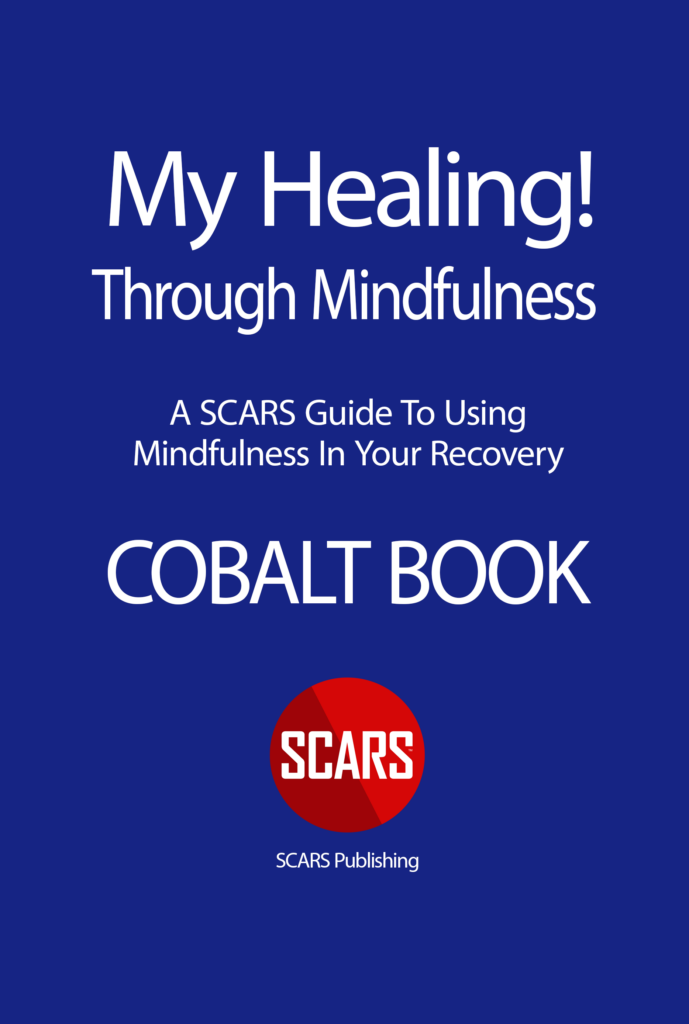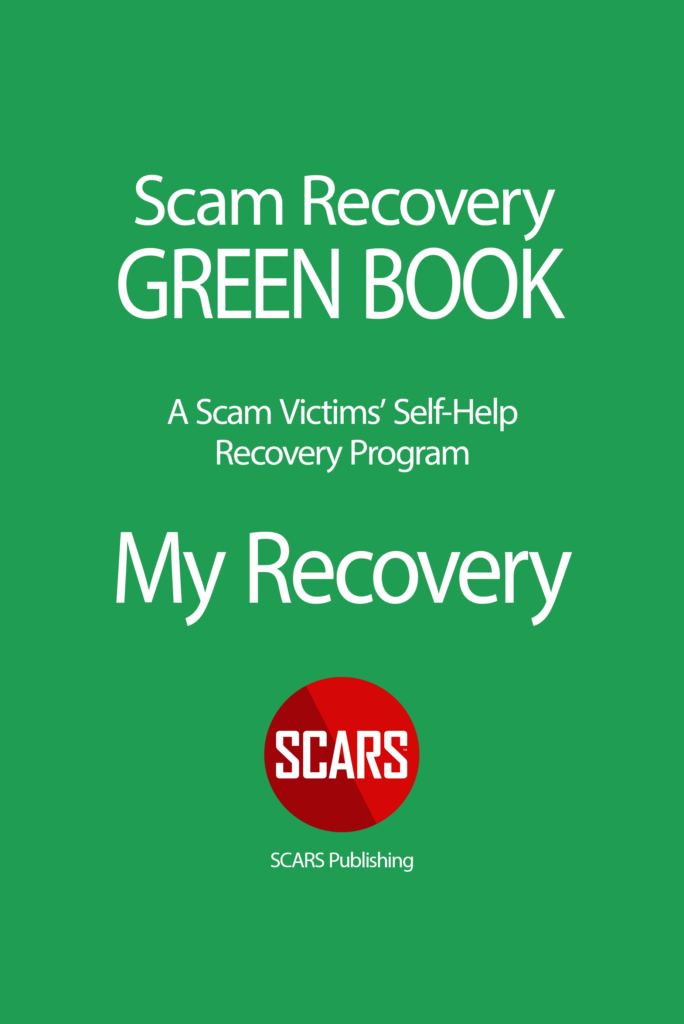Thought Patterns That Sustain Depression – An Overview for Scam Victims
Helping Scam Victims Understand Depression and the Need For Help!
Primary Category: Recovery Psychology
Authors:
• SCARS Editorial Team – Society of Citizens Against Relationship Scams Inc.
• Vianey Gonzalez B.Sc(Psych) – Psychologist, Certified Deception Professional, Psychology Advisory Panel & Director of the Society of Citizens Against Relationship Scams Inc.
• Tim McGuinness, Ph.D. – Anthropologist, Scientist, Director of the Society of Citizens Against Relationship Scams Inc.
About This Article
Victims of relationship scams often experience profound emotional and psychological impacts, including depression, due to feelings of betrayal and diminished self-worth. Addressing the cognitive patterns that sustain depression is crucial for their recovery.
Almost all scam victims suffer from trauma, and while resilience varies, every victim should be evaluated by a licensed mental health professional to prevent worsening symptoms. There is no shame in seeking help; it is a courageous step towards healing. Mental health professionals provide a safe, non-judgmental space for victims to process their experiences, rebuild self-esteem, and develop coping strategies. Early intervention can mitigate long-term effects, helping victims regain control over their lives and well-being.

A Note About Labeling!
We often use the term ‘scam victim’ in our articles, but this is a convenience to help those searching for information in search engines like Google. It is just a convenience and has no deeper meaning. If you have come through such an experience, YOU are a Survivor! It was not your fault. You are not alone! Axios!
How to Work with the Thought Patterns that Sustain Depression in Victims of Relationship Scams
Victims of relationship scams often experience profound emotional and psychological impacts, including depression. These individuals struggle with feelings of betrayal, loss, and diminished self-worth. Understanding and addressing the cognitive patterns that sustain depression is crucial for their recovery.
Don’t Be Afraid of Mental Health Issues
Scam victims often fear that they may have mental health issues due to the intense emotional and psychological impact of being deceived.
The experience of being scammed can lead to feelings of shame, guilt, and self-doubt, causing victims to question their judgment and mental stability. They might worry that their susceptibility to the scam indicates underlying cognitive or emotional problems, such as impaired judgment or gullibility, which can be distressing and stigmatizing. This internalized fear is compounded by the societal stigma surrounding mental health issues, making victims hesitant to acknowledge their emotional distress or seek help.
Additionally, victims often fear getting help for mental health issues because they dread being judged or blamed for their vulnerability. They might believe that seeking professional assistance will expose their perceived weaknesses and make them appear even more foolish or naive. This fear of being judged or misunderstood can prevent them from accessing the support they need to recover. Also, the process of seeking help can feel overwhelming and daunting, especially when combined with the emotional trauma of the scam. The anxiety about confronting painful memories and the fear of reliving the traumatic experience can further deter victims from seeking mental health support. As a result, many scam victims suffer in silence, compounding their distress and hindering their recovery.
Here is the Fact
Almost all scam victims suffer from some form of trauma, as the experience of being deceived can lead to significant emotional and psychological distress.
The impact of a scam can vary widely among individuals; while some may exhibit remarkable resilience, others may struggle with severe anxiety, depression, or post-traumatic stress disorder (PTSD). Regardless of an individual’s perceived strength, it is crucial that every scam victim gets an evaluation by a licensed psychologist or mental health professional. Early assessment and intervention can prevent the worsening of symptoms and facilitate a healthier recovery process. Recognizing the potential for long-term psychological damage underscores the importance of professional support in addressing the complex emotions and cognitive distortions that often accompany such traumatic experiences.
No Shame
There is no shame in seeking the help one needs after being scammed. Mental health issues, much like physical injuries, require attention and care to heal properly. Society is increasingly recognizing the importance of mental health and the value of professional support. Seeking help demonstrates strength and a proactive approach to personal well-being. Mental health professionals provide a safe, non-judgmental space for victims to process their experiences, rebuild their self-esteem, and develop coping strategies. By addressing the trauma early on, victims can mitigate the long-term effects and regain control over their lives. Accepting and seeking professional help is a critical step toward recovery and should be seen as a courageous and necessary act of self-care.
Do You Have Depression?
See: People Often Cannot Recognize That They Have Depression – 2024 (scamsnow.com)
Strategies to Address Patterns that Sustain Depression
PLEASE NOTE: This article has value for scam victims and also for their families or friends trying to help them. However, as with all things related to mental health issues, we recommend consulting a licensed mental health professional immediately before taking any course of action.
Here are some strategies to help victims work through these patterns:
Recognize and Challenge Cognitive Distortions
Cognitive distortions are irrational or biased ways of thinking that can contribute to depression. Common distortions include:
Overgeneralization: Drawing broad conclusions based on a single event (e.g., “I was scammed once, so I can’t trust anyone ever again”).
Mental Filtering: Focusing solely on the negative aspects of an experience while ignoring the positive (e.g., dwelling on the scam and ignoring supportive relationships).
Discounting the Positive: Downplaying or dismissing positive events or achievements (e.g., “It doesn’t matter that I have supportive friends; I’m still a fool for being scammed”).
Strategies to Address Cognitive Distortions
Identify Distortions: Encourage victims to keep a journal of their thoughts and identify recurring negative patterns.
Challenge Negative Thoughts: Teach them to question the validity of their thoughts. Are these thoughts based on facts or assumptions? While emotions are valid they can be triggered by thoughts, ideas, or beliefs that are not valid.
Reframe: Help them find a more balanced perspective. For instance, “I was scammed, but it doesn’t mean I’m incapable of making good decisions.”
Develop Healthy Coping Mechanisms
Victims may turn to unhealthy coping mechanisms, such as isolation or substance abuse, to deal with their emotions. Developing healthier alternatives is essential.
Engage in Physical Activity: Exercise can significantly improve mood and reduce symptoms of depression.
Practice Mindfulness and Relaxation Techniques: Mindfulness meditation, deep breathing exercises, and yoga can help manage stress and anxiety.
Seek Social Support: Encourage victims to reach out to trusted friends and family members. Support groups for scam victims can also be beneficial.
Set Realistic Goals and Expectations
Victims may feel overwhelmed by the process of recovery. Setting small, achievable goals can help them regain a sense of control and accomplishment.
Break Down Tasks: Encourage them to break down larger tasks into smaller, manageable steps.
Celebrate Progress: Acknowledge and celebrate even small achievements to boost self-esteem and motivation.
Rebuild Trust and Self-Esteem
Scam victims often suffer from diminished self-worth and trust issues. Rebuilding these aspects is crucial for recovery.
Therapeutic Interventions: Cognitive-behavioral therapy (CBT) can help victims work through trust issues and rebuild self-esteem.
Self-Compassion: Encourage victims to practice self-compassion and forgive themselves for being deceived. Remind them that being scammed is not a reflection of their worth or intelligence.
Address Emotional Reasoning
Victims may rely heavily on emotional reasoning, where they believe their negative emotions reflect reality (e.g., “I feel worthless, so I must be worthless”).
Strategies to Address Emotional Reasoning
Evidence-Based Thinking: Encourage victims to look for evidence that supports or contradicts their feelings. Are their feelings based on facts or emotions?
Positive Affirmations: Help them develop positive affirmations to counteract negative thoughts (e.g., “I am valuable and deserving of respect”). SCARS Affirmations are:
-
-
-
- ‘It was not my fault’
- ‘I am a survivor’
- ‘I am not alone’
- ‘AXIOS’
-
-
Professional Help
Professional support is readily invaluable to help the victims of relationship scams manage depression and cognitive distortions.
Therapists and Counselors: Mental health professionals can provide tailored interventions to address the specific needs of scam victims. Visit the SCARS directory here: counseling.AgainstScams.org
Support Providers: Joining support groups can provide a sense of community and shared understanding, reducing feelings of isolation. Sign up for SCARS Support Services here: support.AgainstScams.org
Educate and Empower
Knowledge is empowering. Educating victims about scams, how they operate, and common cognitive distortions can help them feel more in control and less vulnerable in the future.
Comprehensive Knowledge: SCARS provides the largest repository of knowledge for scam victims at:
Scam Awareness: Teach them about the signs of scams and how to protect themselves in the future.
Cognitive Restructuring: Educate them about cognitive distortions and how to challenge and reframe negative thoughts.
Summary
By recognizing and challenging cognitive distortions, developing healthy coping mechanisms, and seeking professional support, victims of relationship scams can work through the patterns that sustain depression and move towards recovery and healing.
Important Information for New Scam Victims
- Please visit www.ScamVictimsSupport.org – a SCARS Website for New Scam Victims & Sextortion Victims
- SCARS Institute now offers a free recovery program at www.SCARSeducation.org
- Please visit www.ScamPsychology.org – to more fully understand the psychological concepts involved in scams and scam victim recovery
If you are looking for local trauma counselors please visit counseling.AgainstScams.org or join SCARS for our counseling/therapy benefit: membership.AgainstScams.org
If you need to speak with someone now, you can dial 988 or find phone numbers for crisis hotlines all around the world here: www.opencounseling.com/suicide-hotlines
More Depression Related Information:
- People Often Cannot Recognize That They Have Depression – 2024 (scamsnow.com)
- Susceptibility To Deception/Scams/Fraud With Victims Who Also Suffer From Mental Disorders – 2024 (scamsnow.com)
- Toxic Self-Narratives That Feeds Depression in Scam Victims 2023 (scamsnow.com)
- Trauma & Nutritional Health – Take Your Vitamins – 2023 (scamsnow.com)
- Scam Victims & Mental Health Blaming (scamsnow.com)
- Scam Victim Stress – The Psychological, Cerebral, and Physiological Effects – 2024 (scamsnow.com)
- Trust: Romance Scams Betrayal And Scam Victims – 2024 (scamsnow.com)
Statement About Victim Blaming
Some of our articles discuss various aspects of victims. This is both about better understanding victims (the science of victimology) and their behaviors and psychology. This helps us to educate victims/survivors about why these crimes happened and to not blame themselves, better develop recovery programs, and to help victims avoid scams in the future. At times this may sound like blaming the victim, but it does not blame scam victims, we are simply explaining the hows and whys of the experience victims have.
These articles, about the Psychology of Scams or Victim Psychology – meaning that all humans have psychological or cognitive characteristics in common that can either be exploited or work against us – help us all to understand the unique challenges victims face before, during, and after scams, fraud, or cybercrimes. These sometimes talk about some of the vulnerabilities the scammers exploit. Victims rarely have control of them or are even aware of them, until something like a scam happens and then they can learn how their mind works and how to overcome these mechanisms.
Articles like these help victims and others understand these processes and how to help prevent them from being exploited again or to help them recover more easily by understanding their post-scam behaviors. Learn more about the Psychology of Scams at www.ScamPsychology.org
SCARS Resources:
- Getting Started: ScamVictimsSupport.org
- FREE enrollment in the SCARS Institute training programs for scam victims SCARSeducation.org
- For New Victims of Relationship Scams newvictim.AgainstScams.org
- Subscribe to SCARS Newsletter newsletter.againstscams.org
- Sign up for SCARS professional support & recovery groups, visit support.AgainstScams.org
- Find competent trauma counselors or therapists, visit counseling.AgainstScams.org
- Become a SCARS Member and get free counseling benefits, visit membership.AgainstScams.org
- Report each and every crime, learn how to at reporting.AgainstScams.org
- Learn more about Scams & Scammers at RomanceScamsNOW.com and ScamsNOW.com
- Learn more about the Psychology of Scams and Scam Victims: ScamPsychology.org
- Self-Help Books for Scam Victims are at shop.AgainstScams.org
- Donate to SCARS and help us help others at donate.AgainstScams.org
- Worldwide Crisis Hotlines: International Suicide Hotlines – OpenCounseling : OpenCounseling
- Campaign To End Scam Victim Blaming – 2024 (scamsnow.com)
Psychology Disclaimer:
All articles about psychology and the human brain on this website are for information & education only
The information provided in this and other SCARS articles are intended for educational and self-help purposes only and should not be construed as a substitute for professional therapy or counseling.
Note about Mindfulness: Mindfulness practices have the potential to create psychological distress for some individuals. Please consult a mental health professional or experienced meditation instructor for guidance should you encounter difficulties.
While any self-help techniques outlined herein may be beneficial for scam victims seeking to recover from their experience and move towards recovery, it is important to consult with a qualified mental health professional before initiating any course of action. Each individual’s experience and needs are unique, and what works for one person may not be suitable for another.
Additionally, any approach may not be appropriate for individuals with certain pre-existing mental health conditions or trauma histories. It is advisable to seek guidance from a licensed therapist or counselor who can provide personalized support, guidance, and treatment tailored to your specific needs.
If you are experiencing significant distress or emotional difficulties related to a scam or other traumatic event, please consult your doctor or mental health provider for appropriate care and support.
If you are in crisis, feeling desperate, or in despair please call 988 or your local crisis hotline.
-/ 30 /-
What do you think about this?
Please share your thoughts in a comment below!
More ScamsNOW.com Articles
SCARS LINKS: AgainstScams.org RomanceScamsNOW.com ContraEstafas.org ScammerPhotos.com Anyscam.com ScamsNOW.com
reporting.AgainstScams.org support.AgainstScams.org membership.AgainstScams.org donate.AgainstScams.org shop.AgainstScams.org
youtube.AgainstScams.org linkedin.AgainstScams.org facebook.AgainstScams.org














Leave A Comment